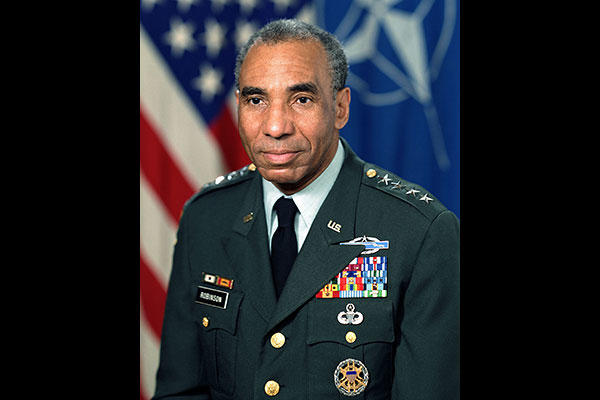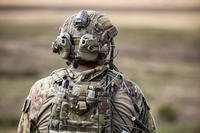In the late 1990s, an Army officer asked a West Point cadet why so few African-American cadets like him were choosing combat arms branches. "Look around," the cadet replied. "Where are the examples that tell us that an African-American officer can be successful in the combat arms?" A committee was formed to choose a graduate who would serve as a role model of an African-American combat arms officer for all cadets. They chose Gen. Roscoe Robinson Jr., U.S. Military Academy Class of 1951, the first African-American officer to rise to the rank of Army four-star general.
Robinson, a distinguished infantry officer whose career encompassed two wars and four stars, had been recognized by his alma mater as a Distinguished Graduate in 1993, the year he passed away after a bout with leukemia. The criteria for the Distinguished Graduate Award states that recipients will epitomize the academy's motto of "Duty, Honor, Country" and underscore "the broad national significance of West Point as one of America's cherished institutions." Robinson certainly met those requirements.
A St. Louis native, Robinson entered West Point in 1947. After he was commissioned, he reported to the 7th Infantry Division in Korea, serving as a platoon leader, rifle company commander, and battalion intelligence officer during his year of combat. He served two years with the 82nd Airborne Division and returned to this famous group in 1976 as its first African-American commander. Robinson's Vietnam service included a battalion command with the 7th Cavalry Regiment during "a period of close and intense combat," as his Distinguished Graduate citation notes. He attended Command and General Staff College, the Army War College, the National War College, and received a master's degree from the University of Pittsburgh. In 1982, he was named the U.S. Representative to the NATO Military Committee.
Robinson retired in 1985 and in 1987 was named to oversee a panel re-examining the performance of some black Army units in the Korean War. "Throughout a military career that took him to the pinnacle of his profession, he overcame diversity with courage and an enduring dedication to duty," according to the U.S. Military Academy's Distinguished Graduate Award. The same West Point committee that chose Robinson as the exemplar of an African-American combat arms officer named an auditorium at the academy in his honor.















